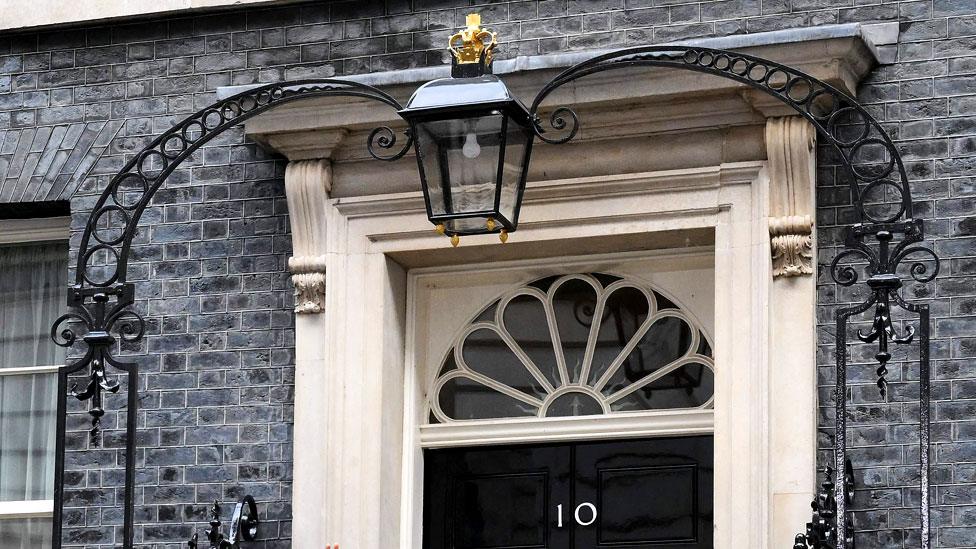What's happening in Parliament next week?
- Published
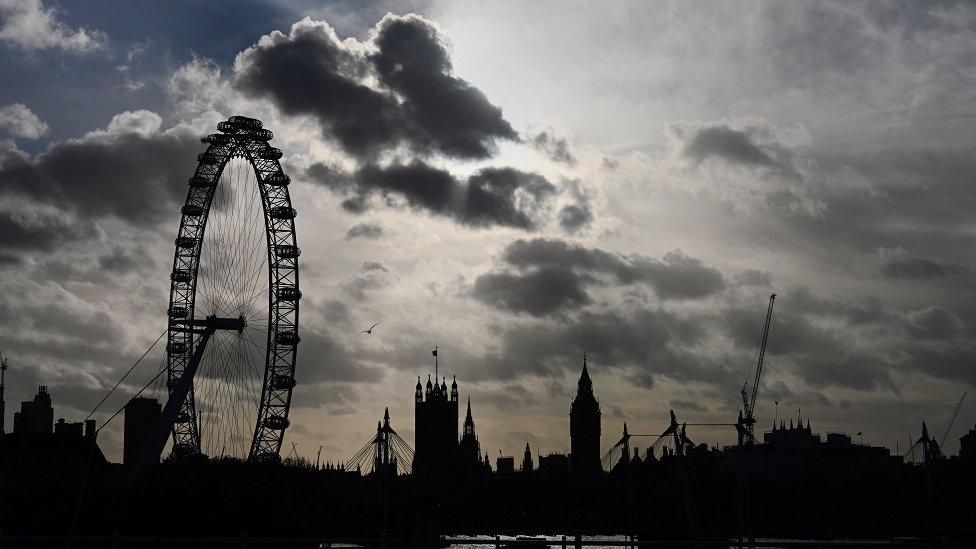
The law-making sausage machine is not turning smoothly.
Thanks to this year's dramatic turnover in prime ministers and secretaries of state, all kinds of bills are in limbo while their contents are rethought.
And backbench Tory dissent about housebuilding targets and the resulting local planning rows has added the vast Levelling up and Regeneration Bill to their number.
With this parliament now past its mid-point, maybe the subject has become untouchable.
An ominous new factor in the same bill is the weighing-in of ex-prime ministers in Boris Johnson and Liz Truss, behind former Levelling Up Secretary Simon Clarke's amendment to end the ban on onshore wind farms.
Not one, but two empires striking back? And where else might they intervene?
Well, there's always the Online Safety Bill, back in the Commons on 5 December after one of those ministerial churn rethinks.
The issue was free speech concerns around its provisions on "legal but harmful" content.
The bill is expected to be "re-committed" to a public bill committee, before it's brought back before the whole House again, in a new form.
Watch out for former Culture Secretary Nadine Dorries, who had pushed hard for action against online harms, both as secretary of state and, before that, as mental health minister.
And then of course there are events. Expect ministerial statements on an assortment of strikes - and urgent questions if they're not forthcoming.
Across the piece, there are some dangerous political undercurrents for ministers to negotiate; despite emphatic government denials, backbench Brexiteers are deeply suspicious after newspaper reports that the government wants "Swiss-style" closer alignment with the EU.
They're on alert for any shift, however subtle, in that direction, and they're also watching the high profile Brexiteers in government for any sign of backsliding.
Meanwhile, SNP MPs will be seeking opportunities to highlight their demands for a second independence referendum.
At the moment there's nothing much on the Order Paper, bar a half hour adjournment debate led by Neil Hanvey of the breakaway Alba Party.
Monday 28 November
Commons: (14:30) Education questions, plus the usual post-weekend government statements and urgent questions.
Main Debate: Second reading of the Finance bill - the measure which puts the Chancellor's Autumn Financial Statement into law.
Westminster Hall: (16:30): Petitions Committee debate on including abortion rights in the government's planned Bill of Rights. This is e-petition 919334, which attracted 166,987 signatures.
Committees: Scottish Affairs (15:00) questions. Scottish Secretary Alister Jack appears after the Supreme Court's ruling that the Scottish government does not have the power to call a second independence referendum
The Public Accounts Committee (14:30) looks at plans to deal with the NHS backlog - figures shown to the committee suggests GPs would have to deliver 129% of the pre-Covid workload, just to keep up, and prevent the backlog increasing.
Lords: (14:30): Lord Roberts of Belgravia, the historian Andrew Roberts, and Lady Lawlor, the founder of the think tank Politea take their seats as Conservative peers.
Main Debate: The first of two report stage days on the detail of the Procurement Bill, which deals with post-Brexit rules for the government's multi-billion pound spending. This took quite a mauling during its committee consideration, with one opposition peer dismissing it as "a complete mess". So expect serious attempts to rewrite it.
Tuesday 29 November
Commons: (11:30) Business Energy and Industrial Strategy Questions.
Ten Minute Rule Bill: Labour MP Marsha De Cordova - who is registered blind - wants a national eye health strategy for England,
Main Debate: MPs zip through all stages Northern Ireland (Executive Formation etc) Bill, which puts off the new elections to the Northern Ireland Assembly. It will then be rushed through the Lords on Monday 5 December.
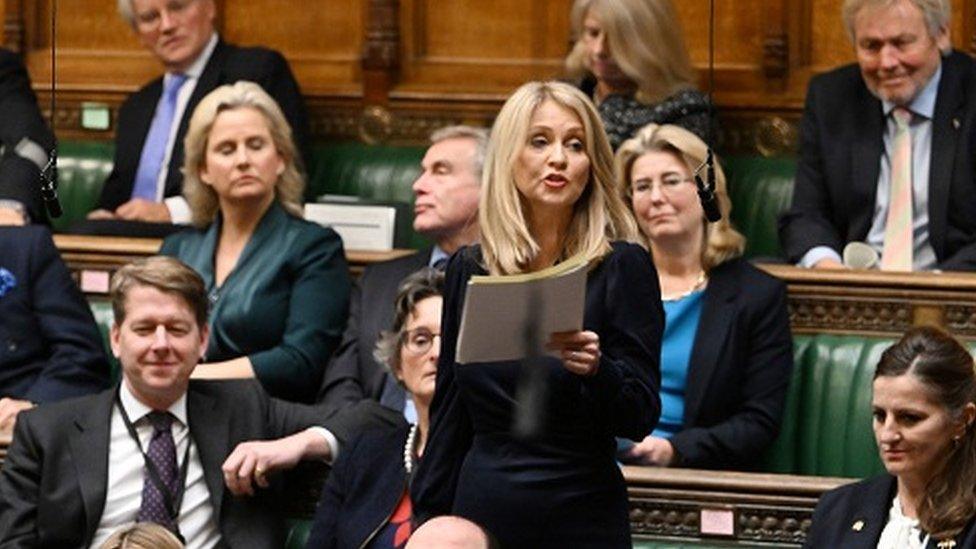
Esther McVey is leading a Westminster Hall debate on Covid lockdowns
Westminster Hall: (11:00) Standards committee chair Chris Bryant has a debate on bringing the ethics rules for ministers, the ministerial code, into line with the code of conduct for MPs. (14:30) Former cabinet minister Ester McVey has a debate on the economic impact of Covid lockdowns.
Committees: Environment, Food and Rural Affairs (14:30) has a hearing into the UK's largest ever outbreak of bird flu, looking at the impact of large scale deaths among wild birds, as well effects on the poultry industry, the supply of turkeys for Christmas and egg shortages.
Education (10:00) questions a panel of young people about the quality of careers education.
Lords: (14:30) Peers vet another job lot of regulations, before debating the chancellor's Autumn Statement.
Wednesday 30 November
Commons: (11:30) Half an hour of Women and Equalities Questions, followed by Prime Minister's Questions.
Main Debate: Remaining stages of the Finance Bill.
Westminster Hall: Sir John Whittingdale leads a debate on the avian flu outbreak (09:30); Neil Harvey of the Alba Party has a debate on government policy on a second independence referendum for Scotland (16:00).
Committees: The joint Health and Social Care/Science and Technology inquiry into coronavirus: lessons learnt (09:30) looks at lessons for potential winter covid-1 and flu outbreaks. Witnesses include covid Vaccine Taskforce Chair, Dame Kate Bingham.
Home Affairs (09:45) hears from Professor Alexis Jay, Chair of the Independent Inquiry into Child Sexual Abuse, on whether it met the expectations of victims and survivors and how its findings have been implemented.
Work and Pensions (09:15) question new Work and Pensions Secretary, Mel Stride, on his priorities, the cost-of-living crisis and the impact of the Autumn Statement on benefits.
Lords (15:00) scrutiny of the Procurement Bill continues.
Thursday 1 December
Commons: (09:30) Digital, Culture, Media and Sport questions, followed by mini-question times for the MPs who speak on behalf of the House of Commons Commission, the Church Commissioners, the Parliamentary Works Sponsor Body, the Public Accounts Commission, and the Electoral Commission.
Main Debate: Another bout of speed legislating as MPs deal with all stages of the Counsellors of State Bill (the measure which adds Princess Anne and Prince Edward to the list of Royal Family members able to deputise for the King.
That's followed by a backbench debate to mark National AIDS day.
Committees: Fresh from their ferocious grilling of Rugby officials, DCMS (10:00) questions BBC executives on the planned cuts to local radio.
Lords: (11:00): Debates on cuts to the BBC World Service; on commitments made by the commissioner of the Metropolitan Police to tackle crime and misconduct within the Met; on the war in Ukraine, including the threatened use of tactical nuclear weapons.
Friday 2 December
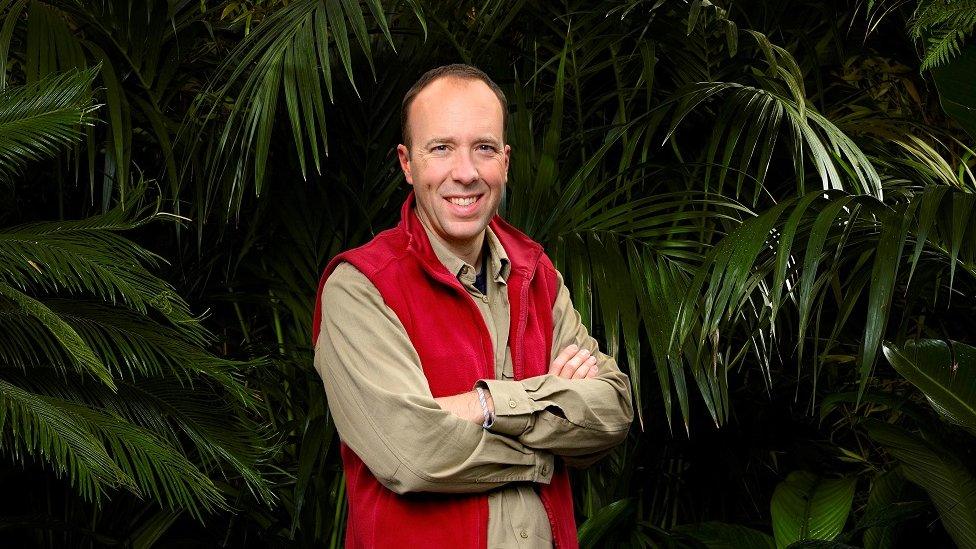
Matt Hancock should be back from the I'm A Celeb jungle
Commons: (09:30) Second Reading debates on Private Members Bills - laws proposed by individual MPs - starting with Conservative MP Greg Smith's Equipment Theft (Prevention) Bill, followed by Mark Jenkinson's Offenders (Day of Release from Detention) Bill and (back from the jungle) former Health Secretary Matt Hancock has his Dyslexia Screening and Teacher Training Bill. There are plenty more bills listed, but there's unlikely to be time to debate them.
Lords: (10:00) Private Members Bills include what is likely to be a brief Third Reading for Green party peer Baroness Jones' Clean Air (Human Rights) Bill.
That's followed by Second Reading debates for Lib Dem Lord Addington's Health Promotion Bill; Labour peer and former General Secretary of the National Union of Teachers, Baroness Blower's School (Reform of Pupil Selection) Bill and Lib Dem Baroness Kramer's Protection of Whistleblowing Bill. Plus a (probably brief) Committee Stage for the Conservative Lord Farmer's Front-loaded Child Benefit Bill.
Related topics
- Published4 November 2022
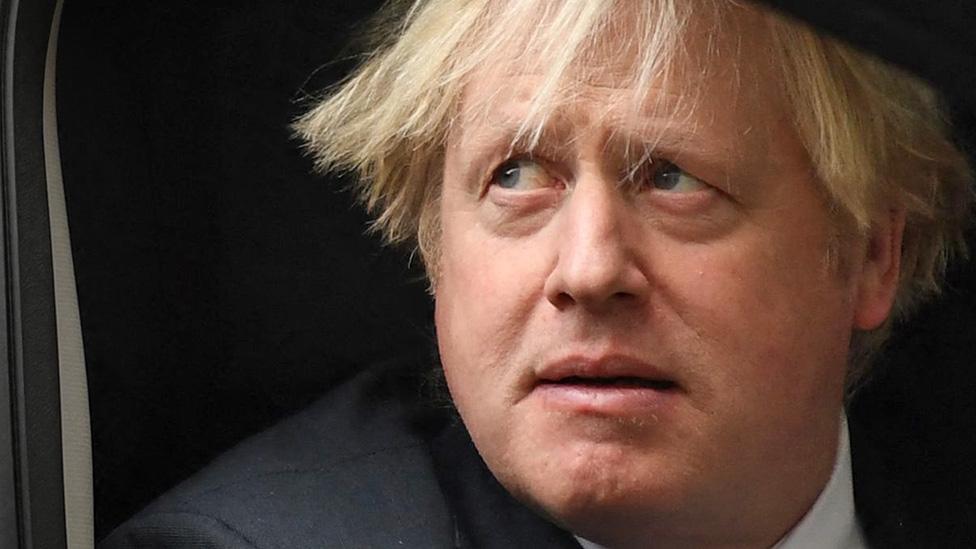
- Published4 November 2022
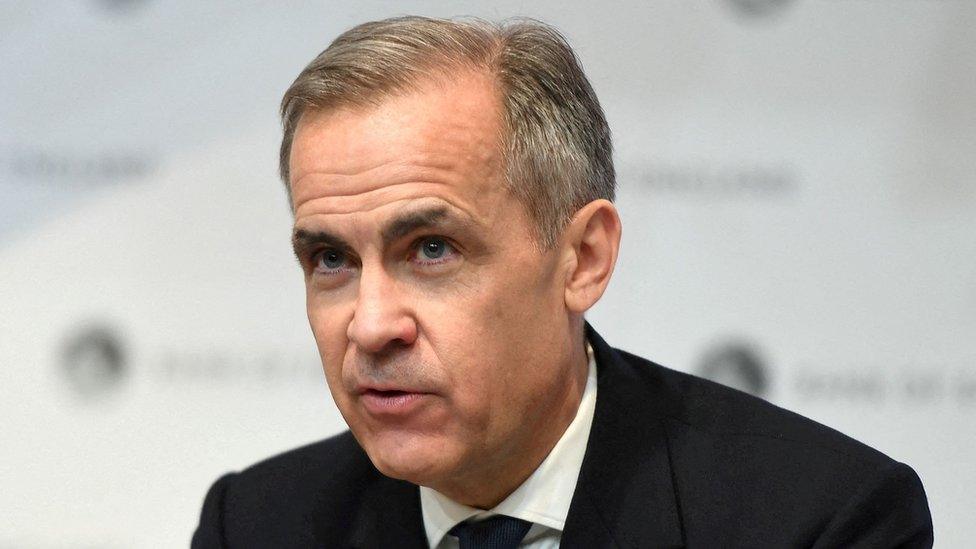
- Published2 November 2022
